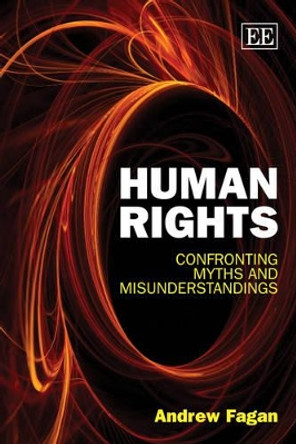Description
The 1948 Universal Declaration of Human Rights has been called one of the most powerful documents in human history. Today, the mere accusation of violations of the rights outlined in this document cows political leaders and riles the international community. Yet as a nonbinding document with no mechanism for enforcement, it holds almost no legal authority. Indeed, since its adoption, the Declaration's authority has been portrayed not as legal or political but as moral. Rather than providing a set of rules to follow or laws to obey, it represents a set of standards against which the world's societies are measured. It has achieved a level of rhetorical power and influence unlike anything else in modern world politics, becoming the foundational myth of the human rights project.
Seeing the Myth in Human Rights presents an interdisciplinary investigation into the role of mythmaking in the creation and propagation of the Universal Declaration. Pushing beyond conventional understandings of myth, which tend to view such narratives as vehicles either for the spreading of particular religious dogmas or for the spreading of erroneous, even duplicitous, discourses, Jenna Reinbold mobilizes a robust body of scholarship within the field of religious studies to help us appreciate myth as a mode of human labor designed to generate meaning, solidarity, and order. This usage does not merely parallel today's scholarship on myth; it dovetails in unexpected ways with a burgeoning body of scholarship on the origin and function of contemporary human rights, and it puts the field of religious studies into conversation with the fields of political philosophy, critical legal studies, and human rights historiography. For Reinbold, myth is a phenomenon that is not merely germane to the exploration of specific religious narratives but is key to a broader understanding of the nature of political authority in the modern world.
Seeing the Myth in Human Rights explores the role of myth in the creation and propagation of the 1948 Universal Declaration of Human Rights. Drawing on records, publications, and speeches from the Declaration's creators as well as current scholarship on human rights, Jenna Reinbold sees the Declaration as an exemplar of modern mythmaking.
About the Author
Jenna Reinbold teaches religion at Colgate University.
Reviews
"Seeing the Myth of Human Rights offers good philosophical and historical understanding of the Universal Declaration of Human Rights; each chapter is both its own piece of scholarship and builds seamlessly upon others. Reinbold's work is thoughtful and sophisticated, and provides an interdisciplinary approach to understanding the myth of human rights." * Human Rights Review *
"Jenna Reinbold explores the role of mythology in the assertion of human rights discourse and offers an original, profound, and provocative contribution to debates on foundationalism in human rights, on the politics of human rights, and on the relationship between the sacred and the secular in international politics." * Bronwyn Leebaw, University of California, Riverside *
"Seeing the Myth in Human Rights is an important work that is sharp but open-minded. Jenna Reinbold links the Universal Declaration of Human Rights to the notion of myth, not to debunk the human rights project but to illuminate the best-known legal, moral, and political document of the twentieth century." * Alexandre Lefebvre, University of Sydney *
Awards
Winner of Received the 2018 Award for Excellence in the Study of Religion, in the category of Analytical-Descriptive Studies, from the American Academy of Religion 2021.
Book Information
ISBN 9780812248814
Author Jenna Reinbold
Format Hardback
Page Count 208
Imprint University of Pennsylvania Press
Publisher University of Pennsylvania Press








